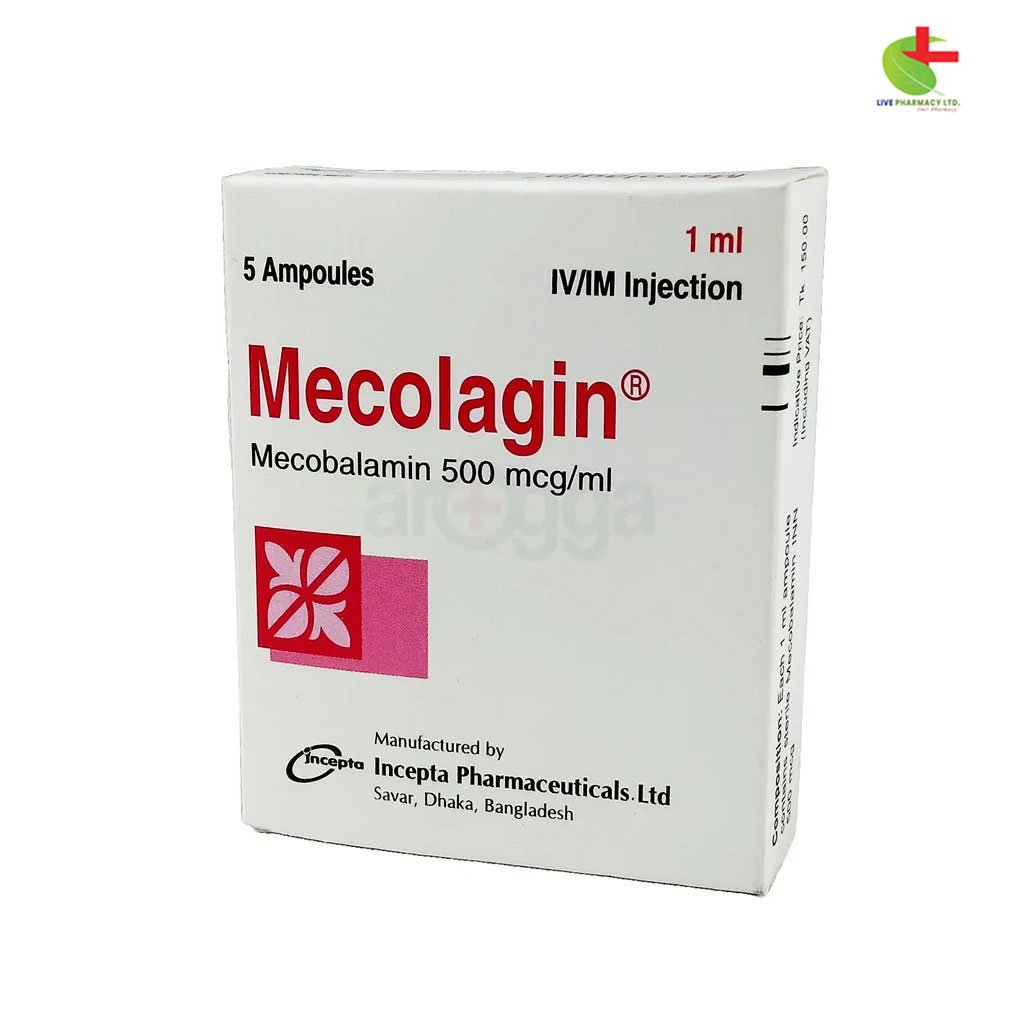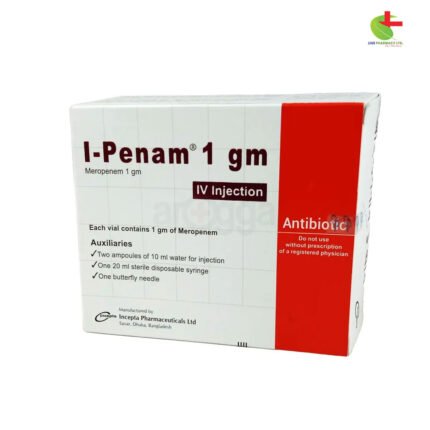Mecolagin
30.00৳ Injection
- Mecolagin is a therapeutic medication indicated for various types of neuropathies, megaloblastic anemia, and related neurological conditions.
- It contains Mecobalamin, a coenzyme form of vitamin B12 essential for nerve health, red blood cell formation, and DNA synthesis.
- Available in both tablet and injection forms, Mecolagin helps alleviate symptoms associated with nerve damage and deficiency.
- Consult a healthcare professional for personalized dosage recommendations and potential interactions.
 Brand
Brand
|
Incepta Pharmaceuticals Ltd |
|---|---|
 Generics
Generics
|
Mecobalamin |
 Type
Type
|
IM/IV Injection |
Indications
Mecolagin tablets are indicated for the treatment of:
- Peripheral neuropathy
- Diabetic neuropathy
- Alcoholic neuropathy
- Drug-induced neuropathy
- Entrapment neuropathy
- Lumbago
- Intercostal neuralgia
- Diabetic retinopathy
- Multiple sclerosis
- Vertebral syndrome
- Parkinson’s disease
- Alzheimer’s disease
- Bell’s palsy
Mecolagin Injection is indicated for:
- Treatment of peripheral neuropathies
- Management of megaloblastic anemia due to vitamin B12 deficiency
Please consult a registered healthcare professional before using this medication.
Pharmacology
Mecobalamin is a coenzyme form of vitamin B12, distinguished from cyanocobalamin by the substitution of a methyl group for the cyano group at cobalt. It serves as a cofactor for the enzyme methionine synthase, facilitating the transfer of methyl groups for regenerating methionine from homocysteine. Mecobalamin is essential for maintaining myelin integrity, supporting neuronal function, ensuring proper red blood cell formation, and facilitating DNA synthesis. Additionally, it aids in synthesizing neuronal lipids, regenerating axonal nerves, promoting axonal transport, and exhibiting neuroprotective properties.
Dosage & Administration
Tablets: The recommended dosage is 0.5 mg taken three times daily after meals. Dosage may be adjusted based on the patient’s age and symptom severity.
Injection:
- Peripheral Neuropathies: Adults should receive 1 ampoule (500 mcg Mecobalamin) administered intramuscularly (IM) or intravenously (IV) three times a week. The dosage may be adjusted according to the patient’s age and symptoms.
- Megaloblastic Anemia: Adults should receive 1 ampoule (500 mcg Mecobalamin) daily, administered IM or IV three times a week. After two months of treatment, the dose may be reduced to one ampoule every 1 to 3 months for maintenance therapy.
Use in Children: Not recommended.
Please consult a registered healthcare professional before using this medication.
Interaction
The absorption of vitamin B12 may be diminished by medications such as neomycin, aminosalicylic acid, histamine H2-antagonists, omeprazole, and colchicine. Additionally, oral contraceptives may decrease serum concentrations. While many of these interactions are not clinically significant, they should be considered when evaluating blood concentrations.
Contraindications
Do not use if there is hypersensitivity to Mecobalamin or any components of the formulation.
Side Effects
Dermatological Effects: Rash; discontinue treatment if such symptoms occur.
Gastrointestinal Effects: Anorexia, nausea/vomiting, and diarrhea.
Neurological Effects (Central Nervous System): Headache.
Others:
- Anaphylactoid reactions, such as decreased blood pressure or dyspnea, may occur. Patients should be closely monitored, and treatment should be stopped immediately if symptoms arise.
- Hot sensation
- Diaphoresis
- Pain or induration at the injection site
Pregnancy & Lactation
Data on the use of Mecobalamin during pregnancy and lactation are limited. However, as vitamin B12 is present in breast milk, its use is generally considered compatible with breastfeeding according to the American Academy of Pediatrics.
Precautions & Warnings
Mecolagin should not be used aimlessly for longer than one month unless deemed effective. Prolonged use of higher doses is not recommended for individuals whose occupations involve handling mercury or mercury compounds.
Therapeutic Class
Drugs for Megaloblastic Anemia
Storage Conditions
Store at room temperature, away from moisture and light.













Reviews
There are no reviews yet.